
GÉANT is the pan-European data network for the research and education community. It interconnects national research and education networks (NRENs) across Europe, enabling collaboration on projects ranging from biological science, to earth observation, to arts and culture. The GÉANT project combines a high-bandwidth, high-capacity 50,000 km network with a growing range of services. These allow researchers to collaborate, working together wherever they are located. Services include identity and trust, multi-domain monitoring perfSONAR MDM, dynamic circuits and roaming via the eduroam service.
Grid computing is the use of widely distributed computer resources to reach a common goal. A computing grid can be thought of as a distributed system with non-interactive workloads that involve many files. Grid computing is distinguished from conventional high-performance computing systems such as cluster computing in that grid computers have each node set to perform a different task/application. Grid computers also tend to be more heterogeneous and geographically dispersed than cluster computers. Although a single grid can be dedicated to a particular application, commonly a grid is used for a variety of purposes. Grids are often constructed with general-purpose grid middleware software libraries. Grid sizes can be quite large.

Internet2 is a not-for-profit United States computer networking consortium led by members from the research and education communities, industry, and government. The Internet2 consortium administrative headquarters are located in Ann Arbor, Michigan, with offices in Washington, D.C. and Emeryville, California.
CARNET is the national research and education network of Croatia. It is funded from the government budget and it operates from offices in Zagreb and five other cities.
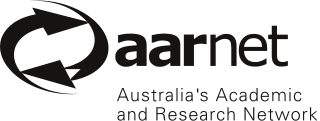
AARNet provides Internet services to the Australian education and research communities and their research partners.
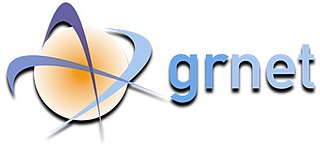
The Greek Research and Technology Network or GRNET is the national research and education network of Greece. GRNET S.A. provides Internet connectivity, high-quality e-Infrastructures and advanced services to the Greek Educational, Academic and Research community, aiming at minimizing the digital divide and at ensuring equal participation of its members in the global Society of Knowledge. Additionally, GRNET develops digital applications that ensure resource optimization for the Greek State, modernize public functional structures and procedures, and introduce new models of cooperation between public bodies, research and education communities, citizens and businesses. GRnet's executives have been contributors of or occupied board positions in organisations including GÉANT, TERENA, DANTE, Euro-IX, RIPE NCC. GRNET provides advanced services to the following sectors: Education, Research, Health, Culture. GRNET supports all Universities, Technological Education Institutes, Research Centers and over 9,500 schools.
RENATER is the national research and education network in France.
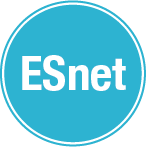
The Energy Sciences Network (ESnet) is a high-speed computer network serving United States Department of Energy (DOE) scientists and their collaborators worldwide. It is managed by staff at the Lawrence Berkeley National Laboratory.
The D-Grid Initiative was a government project to fund computer infrastructure for education and research (e-Science) in Germany. It uses the term grid computing. D-Grid started September 1, 2005 with six community projects and an integration project (DGI) as well as several partner projects.
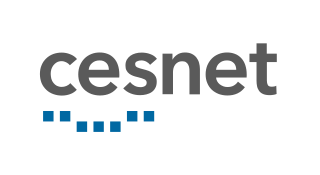
CESNET is developer and operator of national e-infrastructure for science, research, development and education in Czech Republic. The CESNET association was founded in 1996 by Czech public universities and the Academy of Sciences of the Czech Republic. An important part of CESNET's activities is research of advanced network technologies and applications from hybrid networking, programmable hardware, metacomputing to middleware and video transmissions. CESNET fulfils the role of NREN within the Czech Republic and represents it in international organisations such as the GÉANT Association, EGI and GLIF. CESNET is involved in the implementation of the European backbone network project called GÉANT. Within the Czech Republic CESNET fulfils the role of a coordinator of large infrastructures involved in the field of information technology.

CANARIE is the not-for-profit organisation which operates the national backbone network of Canada's national research and education network (NREN). The organisation receives the majority of its funding from the Government of Canada. It supports the development of research software tools; provides cloud resources for startups and small businesses; provides access and identity management services; and supports the development of policies, infrastructure and tools for research data management.
Delivery of Advanced Network Technology to Europe (DANTE) is a not-for-profit company that plans, builds and operates the consecutive generations of the backbone network that interconnects the national research and education networks (NRENs) in Europe. The organisation is based in Cambridge, United Kingdom and was formed in 1993 as a limited liability company owned by Réseaux Associés pour la Recherche Européenne (RARE). Ownership was transferred to a number of NRENs and government agencies in 1994.

The University Computing Centre in Zagreb has a long tradition in the area of information and communication technologies. It was founded in 1971 within the University of Zagreb, the only Croatian university at the time, with the purpose to enhance the implementation of information technologies in the academic community as well as in Croatia in general.
The INFN Grid project was an initiative of the Istituto Nazionale di Fisica Nucleare (INFN) —Italy's National Institute for Nuclear Physics—for grid computing. It was intended to develop and deploy grid middleware services to allow INFN's users to transparently and securely share the computing and storage resources together with applications and technical facilities for scientific collaborations.
The Worldwide LHC Computing Grid (WLCG), formerly the LHC Computing Grid (LCG), is an international collaborative project that consists of a grid-based computer network infrastructure incorporating over 170 computing centers in 42 countries, as of 2017. It was designed by CERN to handle the prodigious volume of data produced by Large Hadron Collider (LHC) experiments.
The Distributed European Infrastructure for Supercomputing Applications (DEISA) was a European Union supercomputer project. A consortium of eleven national supercomputing centres from seven European countries promoted pan-European research on European high-performance computing systems. By extending the European collaborative environment in the area of supercomputing, DEISA followed suggestions of the European Strategy Forum on Research Infrastructures.

OpenNebula is a cloud computing platform for managing heterogeneous distributed data center infrastructures. The OpenNebula platform manages a data center's virtual infrastructure to build private, public and hybrid implementations of Infrastructure as a Service. The two primary uses of the OpenNebula platform are data center virtualization and cloud deployments based on the KVM hypervisor, LXD system containers, and AWS Firecracker microVMs. The platform is also capable of offering the cloud infrastructure necessary to operate a cloud on top of existing VMware infrastructure. In early June 2020, OpenNebula announced the release of a new Enterprise Edition for corporate users, along with a Community Edition. OpenNebula CE is free and open-source software, released under the Apache License version 2. OpenNebula CE comes with free access to maintenance releases but with upgrades to new minor/major versions only available for users with non-commercial deployments or with significant contributions to the OpenNebula Community. OpenNebula EE is distributed under a closed-source license and requires a commercial Subscription.
The Academic Scientific Research Computer Network of Armenia (ASNET-AM) is the national research and education network (NREN) of Armenia. ASNET-AM was created in 1994. The structure and policy of ASNET-AM operation was developed and realized by the Institute for Informatics and Automation Problems of the National Academy of Sciences of Armenia.

AMRES is the National Research and Education Networking organisation (NREN) in Serbia. After it was founded on 22 April 2010 as an institution by the Serbian government, AMRES took over the responsibility for the academic network and the associated services from the Computer Centre of the University of Belgrade. AMRES represents Serbia in international forums such as TERENA, but the University of Belgrade is still the organisation representing Serbia in the project that provides the funding for the European backbone network GÉANT.
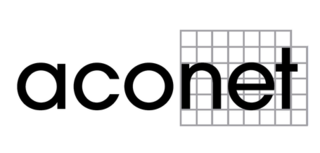
ACOnet is the name of the national research and education network in Austria. The ACONET association promotes the development and use of that network. ACOnet is not managed and operated by ACONET, but by a unit in the Computing Centre of the University of Vienna that also operates the Vienna Internet Exchange. The University of Vienna represents ACOnet internationally, for example as a member of TERENA and as a participant in the project that funds the European backbone network GÉANT.










